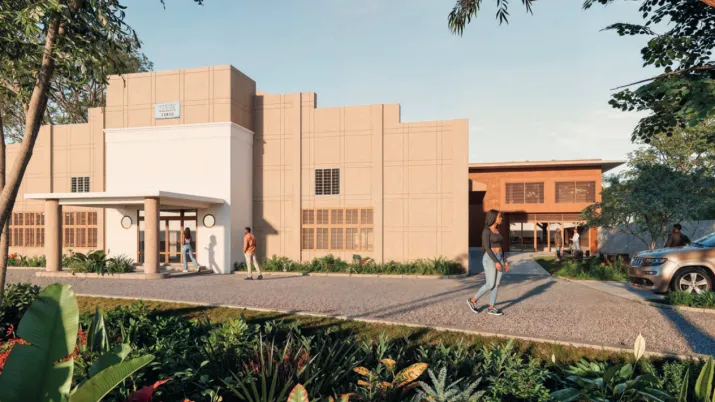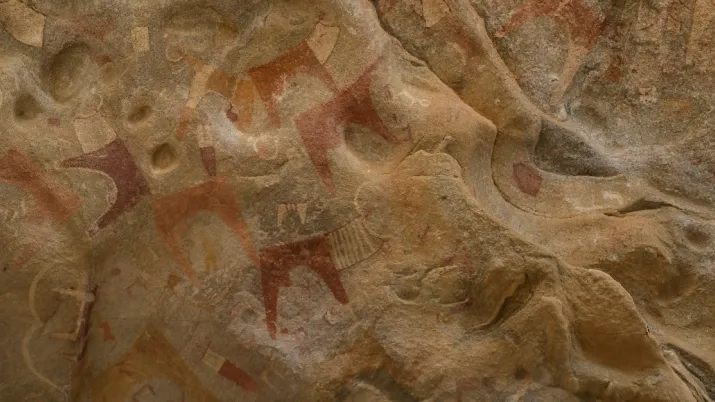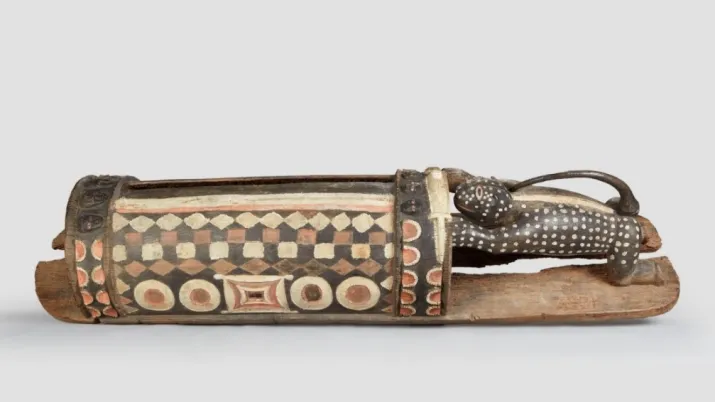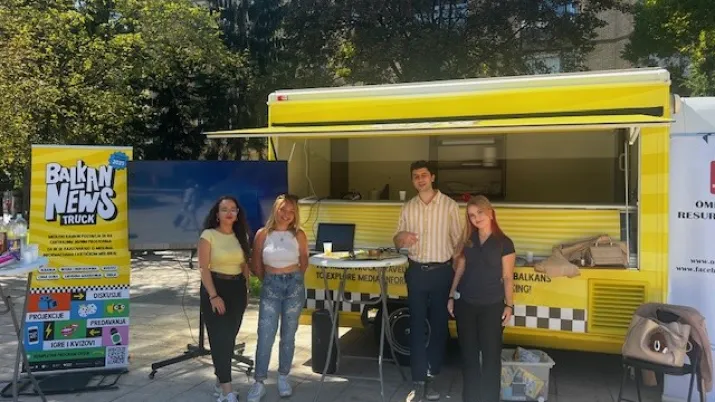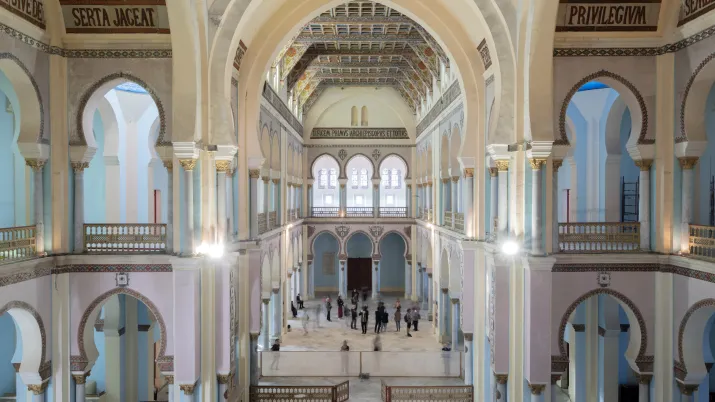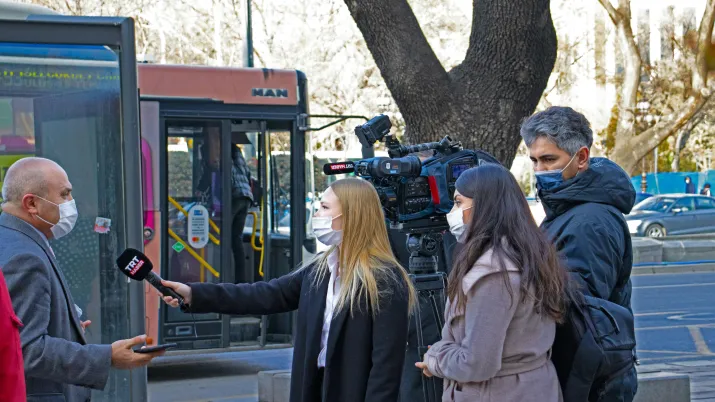Share the page
Patrimoine 3000 - Project to Support the Development of Tunisia’s Cultural Heritage
Project
Published on
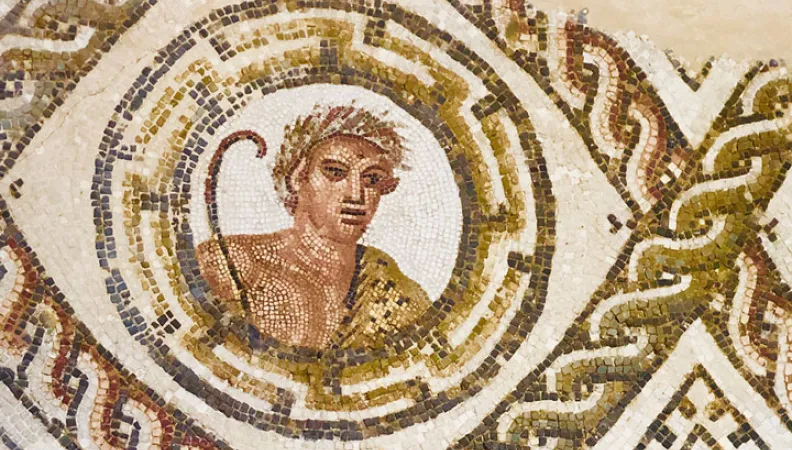
-
Project start date
-
Status
Ongoing
-
Project end date
-
-
Financing amount (Euro)
-
19m
-
Country and region
-
Tunisia, Africa
-
Funders
Funded by the European Union, this project to Support the Development of Cultural Heritage is part of the Tounes Wijhetouna (“Tunisia: Our Destination”) programme which aims to diversify Tunisia's cultural offer.
Reviving tourism through the cultural offer, a strategic focus of Tunisia’s economic development plan
In 2016, the Tunisian authorities adopted the “2016-2020” Development Plan whose main objectives are to launch major institutional and economic reforms and boost investments. The modernisation and diversification of tourism, a pillar of the Tunisian economy, is a priority focus of this plan.
In this context, heritage development is a major engine of economic and social development and also promotes the cultural offer for both Tunisian and foreign tourists.
Tounes Wijhetouna: Tunisia, Our Destination
The Programme to Support the Diversification of Tourism, the Development of Handicrafts and the Promotion of Cultural Heritage – Tounes Wijhetouna (“Tunisia: Our Destination”) provides a response to the need for reforms expressed by the Tunisian authorities.
It aims to help diversify Tunisia’s tourism offer by creating synergies between the tourism, crafts, regional products and cultural heritage sectors. To be effective, these synergies need to be based on a qualitative strengthening of each of these sectors. The programme’s overall objective is to contribute to sustainable and inclusive economic development in Tunisia.
Objectives of the Patrimoine 3000 Project
The European Union entrusted Expertise France with the implementation of the “Promoting cultural heritage in tourism” component of the Patrimoine 3ooo project. It benefits a wide range of Tunisian institutional actors, among which: the Ministries of Cultural Affairs, Tourism and State Property, the General Body of Public-Private Partnerships, the National Heritage Institute. It is also aimed at public owners of buildings of historical interest (local authorities, public companies, minitries), tourism promoters and local and international tourists.
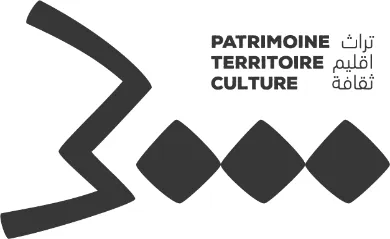
The project includes two areas of operation.
Area 1: cultural and tourist concessions for historic buildings
The aim of this initiative is to foster a new dynamic between public and private stakeholders in order to promote the restoration of historic buildings and their conversion into economically viable spaces with a strong social and cultural impact (hotels, restaurants, museums, creative industries, etc.).
Thanks to a partnership between Patrimoine 3000, the General Public-Private Partnership Authority, the Ministry of State Property and Land Affairs, and the National Heritage Institute, various tools have been developed to support the reform of the concession framework. Several pilot projects, in Tunis and the regions, are receiving technical support for their implementation.
Area 2: Redevelopment of the Byrsa Acropolis and renovation of Carthage National Museum
This component aims to renovate Carthage National Museum - one of the main Tunisian cultural institutions - and its surroundings while taking into account the various scientific and technical stakes of operating in an archaeological site, in the heart of the Great Tunis.
Through this project, the National Museum of Carthage aims to become a new cultural space combining its traditional missions of conservation, enhancement of the Carthaginian heritage and new functions of conviviality and services.
The project expected outcomes are as follows:
- Carthage National Museum is reopened to the public and offers enhanced surroudings, innovative visitor trails and strenghtened services.
- A set of operational tools for concessions in historic buildings is produced and institutionalised.
- Public buildings of historical interest are concessioned and rehabilitated and help to make cultural tourism more dynamic.
In a cross-cutting manner, this project focuses on creating dynamics between stakeholders that contribute to heritage development, paying special attention to the institutional arrangements, regulatory frameworks and economic models in order to ensure that the support provided is sustainable.
Implementation team
For the project implementation, Expertise France is supported by a project team based in Tunis combining technical, logistics, administrative and financial expertise.
Similar Projects
Rehabilitating the Centre for Training and Research in Dramatic Arts in Brazzaville
Ongoing
2023 - 2026
Funders : Ministry for Europe and Foreign Affairs of France
Protection and promotion of Somaliland’s archaeological heritage
Ongoing
2024 - 2027
Funders : Agence Française de Développement
In the News
Building a “Shared Horizon” for youth in the Balkans and countering misinformation
Published on September 29, 2025
Innovative projects to strengthen the partnership with the European neighbourhood
Published on April 28, 2025



